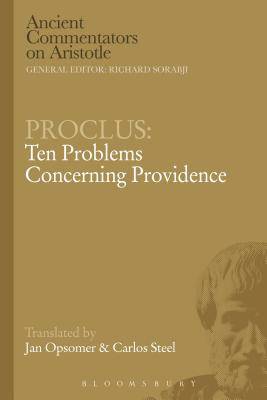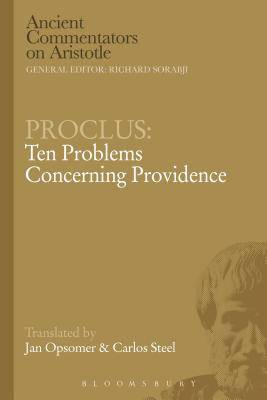
- Afhalen na 1 uur in een winkel met voorraad
- Gratis thuislevering in België vanaf € 30
- Ruim aanbod met 7 miljoen producten
- Afhalen na 1 uur in een winkel met voorraad
- Gratis thuislevering in België vanaf € 30
- Ruim aanbod met 7 miljoen producten
Zoeken
€ 88,45
+ 176 punten
Uitvoering
Omschrijving
'The universe is, as it were, one machine, wherein the celestial spheres are analogous to the interlocking wheels and the particular beings are like the things moved by the wheels, and all events are determined by an inescapable necessity. To speak of free choice or self determination is only an illusion we human beings cherish.' Thus writes Theodore the engineer to his old friend Proclus, one of the last major Classical philosophers. Proclus' reply is one of the most remarkable discussions on fate, providence and free choice in Late Antiquity. It continues a long debate that had started with the first polemics of the Platonists against the Stoic doctrine of determinism. How can there be a place for free choice and moral responsibility in a world governed by an unalterable fate? Proclus discusses ten problems on providence and fate, foreknowledge of the future, human responsibility, evil and punishment (or seemingly absence of punishment), social and individual responsibility for evil, and the unequal fate of different animals.
Until now, despite its great interest, Proclus' treatise has not received the attention it deserves, probably because its text is not very accessible to the modern reader. It has survived only in a Latin medieval translation and in some extensive Byzantine Greek extracts. This first English translation, based on a retro-conversion that works out what the original Greek must have been, brings the arguments he formulates again to the fore.
Until now, despite its great interest, Proclus' treatise has not received the attention it deserves, probably because its text is not very accessible to the modern reader. It has survived only in a Latin medieval translation and in some extensive Byzantine Greek extracts. This first English translation, based on a retro-conversion that works out what the original Greek must have been, brings the arguments he formulates again to the fore.
Specificaties
Betrokkenen
- Auteur(s):
- Uitgeverij:
Inhoud
- Aantal bladzijden:
- 192
- Taal:
- Engels
- Reeks:
Eigenschappen
- Productcode (EAN):
- 9781472557940
- Verschijningsdatum:
- 10/04/2014
- Uitvoering:
- Paperback
- Formaat:
- Trade paperback (VS)
- Afmetingen:
- 156 mm x 234 mm
- Gewicht:
- 276 g

Alleen bij Standaard Boekhandel
+ 176 punten op je klantenkaart van Standaard Boekhandel
Beoordelingen
We publiceren alleen reviews die voldoen aan de voorwaarden voor reviews. Bekijk onze voorwaarden voor reviews.











